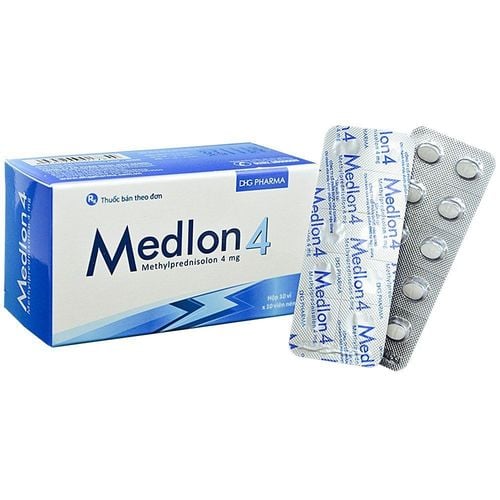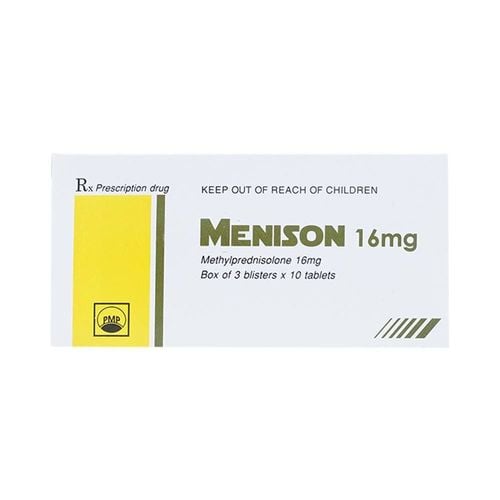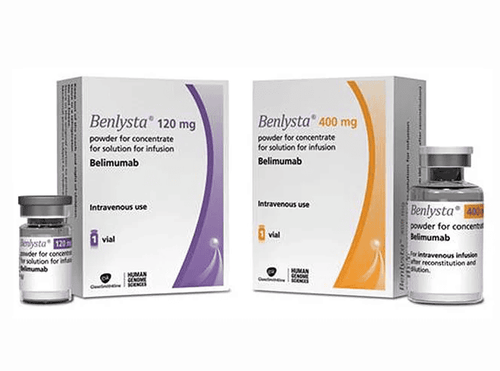This is an automatically translated article.
Anifrolumab is a medication indicated for use in the treatment of moderate to severe lupus erythematosus. However, treatment should be under the direction of a doctor. To use drugs safely and effectively, you need to have a good understanding of them. Find out more about the use of the drug through the article below.
1. What is Anifrolumab?
Anifrolumab is a monoclonal antibody drug, used to treat patients with lupus erythematosus. The drug is prepared in the form of a solution for intravenous injection.
Anifrolumab is a new drug licensed for use to treat moderate to severe systemic lupus erythematosus (SLE) in adults.
Lupus erythematosus is an autoimmune disease in which the body's immune system mistakenly attacks healthy tissues in the body, causing damage to healthy tissues. This is a chronic and complex disease with many clinical manifestations, which can affect multiple organs, causing permanent damage. The drugs used to treat this disease in the past were also a potential risk for patients due to long-term use. Anifrolumab licensing provides effective treatment without the risk of other side effects caused by previous medications.
2. Uses of Anifrolumab
Anifrolumab is licensed for use in patients with moderate to severe systemic lupus erythematosus to help relieve symptoms and complications caused by this disease. The drug is also used in people who are receiving standard treatment.
3. How is Anifrolumab used?
Anifrolumab is made as an intravenous injection, you will be injected into your vein by your healthcare provider, usually every 4 weeks. The course of administration of anifrolumab must be administered slowly over 30 minutes.
In case you miss a dose, call your doctor for additional instructions on how to administer Anifrolumab. You should take the injection as soon as you remember you forgot to take the medicine and make sure to take it at least 14 days apart.
4. Anifrolumab side effects
When taking drugs in addition to the therapeutic effects, some cases may cause other undesirable effects.
Get emergency medical help if you have signs of a serious allergic reaction while taking the medicine such as: Hives; Tachycardia or arrhythmia; Feeling lightheaded; Shortness of breath; Swelling of the face, lips, tongue, or throat. Taking medication can increase your risk of infection, which can even lead to death. So tell your doctor right away if you have signs of an infection such as: Fever, chills, sweating, muscle aches; Painful skin sores with warmth or redness; Frequent urination, pain or burning when urinating, diarrhea or cough, cough with phlegm, trouble breathing, chest pain or symptoms of herpes zoster causing sores or blisters on the skin, itching, tingling, pain, rash on your face or torso. Some other common side effects include: Shingles, shingles, cold symptoms such as stuffy nose, sneezing, sore throat, headache, fatigue, dizziness or nausea when taking. Other side effects can also occur when taking the drug, if you see any abnormality you think is due to taking the drug, you should talk to your doctor for advice.
5. Things to note when taking Anifrolumab
Do not use Anifrolumab if you have a history of allergy to the drug and do not give it to anyone under 18 years of age.
Before taking Anifrolumab, tell your doctor about a history of allergies to any agent. Tell your doctor if you have an active or chronic infection, cancer, treatment with biologics, monoclonal antibodies, or if you are scheduled to receive a vaccine. You should tell your doctor about the medications you are taking for advice and to make sure to avoid interactions with Anifrolumab.
Make sure you have all vaccines before you start using Anifrolumab. Avoid "live" vaccines such as those for measles, mumps, rubella (MMR), rotavirus, typhoid, yellow fever, and chickenpox because of the risk of vaccine-related illness. . Other vaccines may not work as well while you are taking them.
The effectiveness of this drug has not been evaluated in patients with severe lupus nephritis or severely active CNS lupus. Therefore, use in these cases is not recommended.
If you are pregnant, also tell your doctor. The use of Anifrolumab can affect the baby's immune system, but lupus erythematosus during pregnancy can cause more severe lupus-like complications such as eclampsia, premature birth, miscarriage, or problems on fetal growth.
Because of the increased risk of infection, you need to ensure good prevention measures, avoid the source of infection and eat hygienically, get enough nutrition and exercise regularly.
Above is some information about Anifrolumab drug, this is a drug used under the direction of a doctor and you should follow the treatment indications. To be on the safe side, you should ask your doctor about any possible risks of taking the medication.
Please dial HOTLINE for more information or register for an appointment HERE. Download MyVinmec app to make appointments faster and to manage your bookings easily.
References: drugs.com












